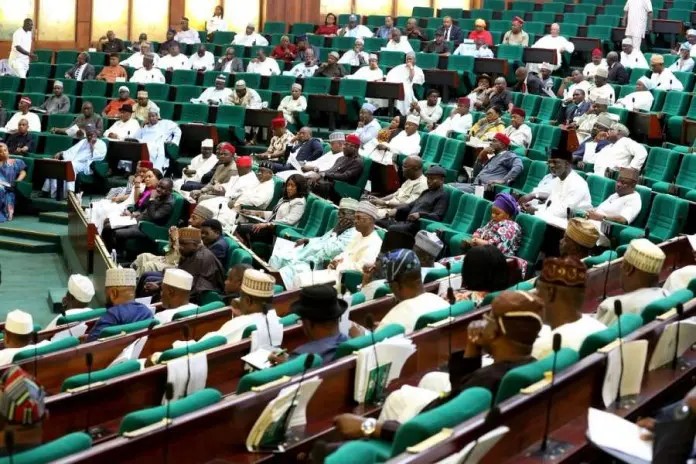Nigerian lawmakers on Tuesday [today] stepped down a Bill seeking to review upward the required educational qualification for some elective offices in the country to a minimum of university degree or its equivalent.
The Bill was sponsored by the Deputy Whip, Hon. Omowunmi Onanuga, but it was stepped down by the leave of the House after extensive debate about its merits and demerits.
The proposed legislation was titled, “A Bill for an Act to Alter the 1999 Constitution of the Federal Republic of Nigeria (as amended) to change the Educational Qualification for Elections into Certain Political Offices and for Related Matters”.
In a lead debate on the general principles of the Bill, Onanuga insisted that all the political offices affected by the proposed amendment are very strategic in their own right, calling on the House to look critically into the educational qualification of political office holders.
She explained that state legislators are important for making laws to govern their states in the interest of the people, the office of the governor is the highest political office in the state and federal legislators are important for making laws in the interest of the nation while the office of the president is the highest political office in the land.
The lawmaker argued that if a Managing Director who holds an equally strategic position in a company in the country cannot be employed without a university degree or its equivalent, why should the those political offices be held by people without a university degree or its equivalent.
“Mr Speaker, Honourable Colleagues, we all know that after a university degree or its equivalent in this country, comes the compulsory National Youth Service Corp, without which it would be difficult to get into any employment especially within the Public Sector.
“Invariably, by leaving the qualification of this political offices to remain at School Certificate level, we are implying that the NYSC is not a requirement to hold political offices but it is a requirement to secure a job in the public sector,” Onanuga stated.
Contributing in support of the Bill, Hon. Babajimi Benson (APC, Lagos) said he wondered why in this modern age one will not go to school beyond secondary education but aspire to higher political offices.
“Anyone who is going to oppose this Bill should tell if his son or daughter is in the university or not. I can’t believe that in this modern age, some people will say don’t go to school but yet go and be the president,” he said.
Similarly, the House Leader, Hon. (Prof.) Julius Ihonvbare, said that, in the modern world, knowledge is power and jerking up qualifications for political offices was apt, but that should not be made compulsory at the local government level.
“We all know what the world is today. In a world where knowledge is power, we see leaders of other nations who make excellent presentations, but here we have leaders dodging debate.
“I don’t think this requirement should apply to all political offices, for local government it might not be required but for President and Vice, National Assembly members should be required to own a degree,” he argued.
But, opposing the Bill, the Minority Whip of the House, Aliyu Madaki (NNPP-Kano) said the leadership quality and ability of a political office holder is not determined by his or her level of education but commitment to service.
“Whatever we are trying to do is for all Nigerians. I have an MBA in Financial Management but restricting others with qualifications will not carry all Nigerians along. All Nigerians should be allowed to participate and exercise their leadership qualities.”
On his part, Hon. Bashir Usman Gorau (PDP-Sokoto) reminded the lawmakers that while they might have been privileged to attend a university or higher institutions, they should not make laws to restrict the less-privileged from participating in elections.
“We were privileged to go to university, but we have less-privileged Nigerians who can’t afford to go to the university. I propose that we allow a minimum requirement for political office holders to remain school cert,” he said.
Also speaking against the Bill, Hon. Ahmed Jaha (APC-Borno) said passing the proposed legislation would have negative effect on some sections of the country, stressing that educational qualification was not a true test of knowledge and intelligence.
“Qualification alone is not a true test of knowledge. We are making laws for good governance and peace in this country. We will not make laws that will favour only a few number of Nigerians.
“How many Nigerians are degree holders? America that we refer to has done greatly in educating its citizens but here in Nigeria what have we done in improving our education system?”
Similarly, the Chief Whip of the House, Hon. Usman Bello Kumo [APC-Gombe], declared that the bill should not see the light of the day as it was against the democratic doctrine of popular participation, while the constitutional provision for school certificate or its equivalent be allowed to stand.


